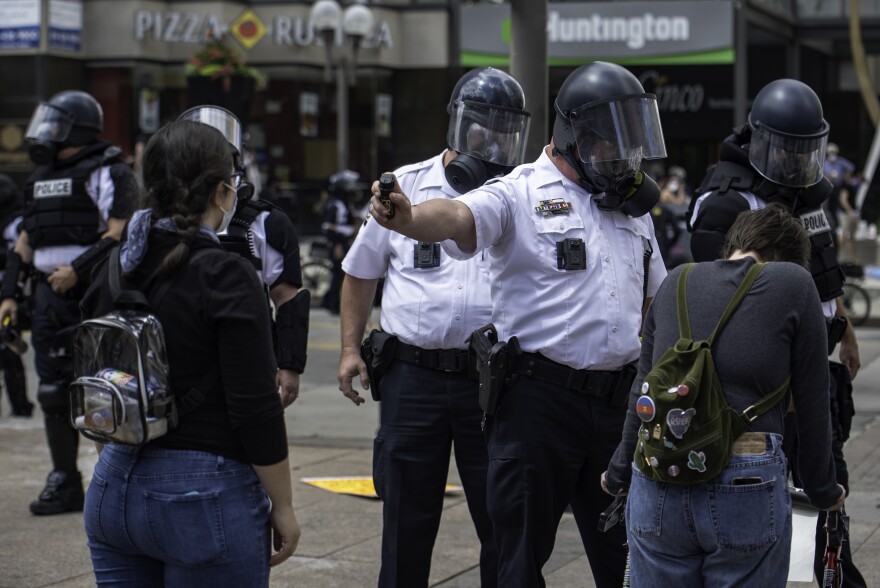A federal appeals court ruled a Columbus Police officer is protected by qualified immunity after pepper-spraying a protester in 2017.
Qualified immunity is a doctrine that shields government officials like police officers from being held personally liable for their actions on the job.
On Jan. 30, 2017, plaintiff Ellen Abdur-Rahim was in downtown Columbus protesting President Trump's travel restrictions when she was pepper sprayed directly in the face by Columbus officer Justin Masters. Abdur-Rahim’s case is being brought by the ACLU of Ohio, which argues that the use of pepper spray was excessive force and violated her First and Fourth Amendment rights.
Wednesday's decision from the Sixth U.S. Circuit Court of Appeals in Cincinatti found that Masters does have qualified immunity and did not violate "clearly established law," overturning a previous ruling from a lower court.
"Abdur-Rahim has not provided a Sixth Circuit case that would have put Masters on notice that it constitutes excessive force to pepper spray directly a lingering individual blocking an intersection after forty-five minutes of dispersal orders and warnings, followed by a general spray over a crowd," the decision reads.
The ruling could create precedent for possible cases connected to Columbus Police’s handling of recent Black Lives Matter protests.
However, the civil case against Masters could still go forward over whether the officer’s actions were reckless or malicious.






